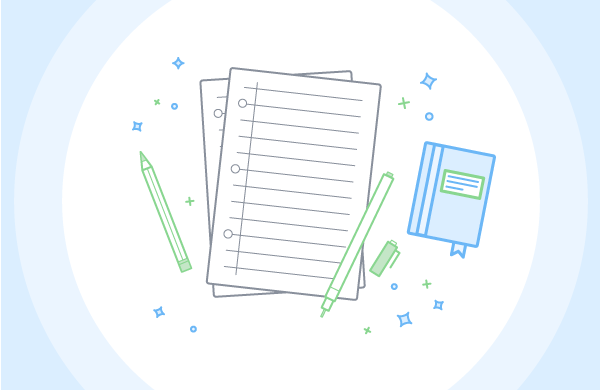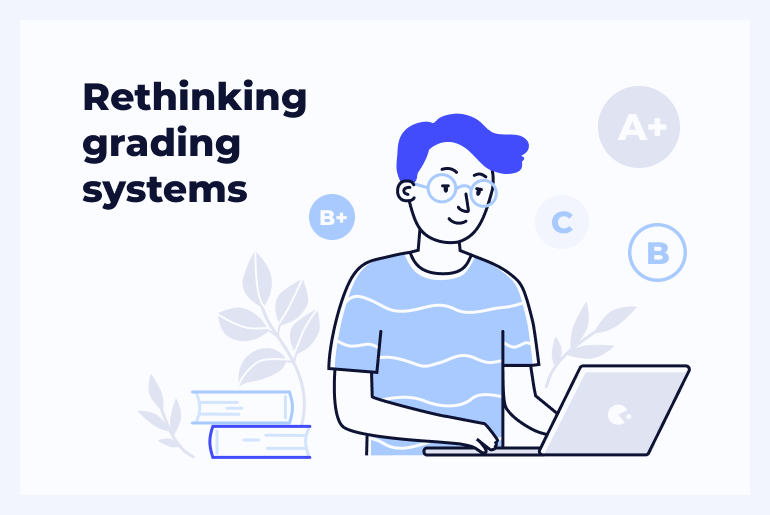While I was working on my MFA, I taught English 101 and 102 to college students (plus a few upper-level creative writing courses and senior capstone projects). Though I decided to take a different path in my career once I earned my degree, I’ll always be grateful for the time I spent in those classrooms. I had only just graduated from college myself and was sometimes younger than some of my students, and it didn’t help that I wasn’t really “over” being an undergraduate student yet.
I had a long way to go in terms of maturity and, looking back, there are a million things I would do differently now. However, I know that there was no way for me to learn those lessons without going through the experiences. And, of course, I had to meet and work with those who ended up being my best teachers… my very own students!
First Generation College Graduates and Plagiarism
Rutgers University conducted a study on plagiarism in 2010 that found 64 percent of students guilty of cheating on a test, 58 percent guilty of plagiarism and 95 percent said copped to having participated in some type of cheating, whether it was on a test, plagiarism or copying homework.
One of the elements that made my teaching experience at West Virginia University memorable was that many of my students were the first in their family to graduate high school and go on to attend college. This made our classes special and exciting, but also added an extra layer of pressure onto the students to succeed. It didn’t help that many of the first-generation college students came from high schools with English programs that were poorly funded with teachers that were overwhelmed. I was shocked by how little some of them knew about the basics of grammar, sentence construction, and essay writing, and realized how frustrating it must have been to have worked hard your whole life on something and still barely pass, simply because you didn’t have the same opportunities as students in wealthier, upper-class families.
This type of pressure paired with the frustration of not having any help or resources can cause students to panic and possibly cut corners, doing whatever it takes to get by. When it came to plagiarism in the classroom, I encountered this type of plagiarism more often that I would have expected. The brazen, arrogant students who simply didn’t feel like doing the work and thought that rules didn’t apply to them were the plagiarizers that I caught with glee; their cases were usually pretty straightforward. However, the students who copy and pasted from an article on the Internet or stole from another student because they were terrified of failing and didn’t trust themselves presented a more complicated challenge.
A Culture of Cheating
CNN Online published an article with a summary of research on the reasons students cheat and plagiarize, which shows that most students believe it’s impossible to lead a successful life without cheating or being dishonest sometimes.
As a teacher, isn’t it my responsibility to help a student feel comfortable with writing, to build confidence in their voice and skills? It’s hard to turn away from a student who clearly needs help. However, it’s also hard (nearly impossible, really) to find time to give extra help to every student who needs it while you’re teaching two sections of English 101 to 30 students each, plus an upper-level Creative Writing course, and trying to finish your own work for your degree. And, of course, it goes without saying that we were paid less than minimum wage, which meant I was often working another job at a local boutique in order to make rent.
A Solution in the Writing Process
Since I’ve hung up my teaching skirt, more and more teachers now require students to submit their writing assignments to a plagiarism detection website like Unicheck before they are allowed to submit their essay for a grade.
Unicheck is a brilliant method of cutting down on the time it takes to grade papers
Each teacher would have to do the same thing to each essay before grading it anyway. However, the spirit of this added step is good for students, too, I think; it forces them to acknowledge how much they might depend on third party sources to communicate Inflatable Air Tumble Track. When forced to reflect on how much original thought they are capable of generating, students must have a better sense of areas they need to work on, right?
Including this step in the writing process for students also puts the power in their hands. The students who might plagiarize because they lack confidence don’t have such an easy path to making this type of mistake. Now, they are provided with a resource upfront, empowering them to not only make better decisions but also learn more about the differences between paraphrasing, quoting and stealing from the plagiarism websites and tools. It reinforces the steps of the writing process, too – just because you have enough words to fill up a page does NOT mean you are done. It teaches students to go back and edit their essays if their submission turns up a high percentage of plagiarized work.
If I were to return to the classroom today (and there are times when I miss it dearly), I believe I would explore more process-oriented solutions that would help empower students before they make the mistake of plagiarizing. This gives everyone a fighting chance and would allow me to actually teach more effectively.
Curious how Unicheck can help teachers grade papers and students avoid plagiarism? Visit our product page for more information.




